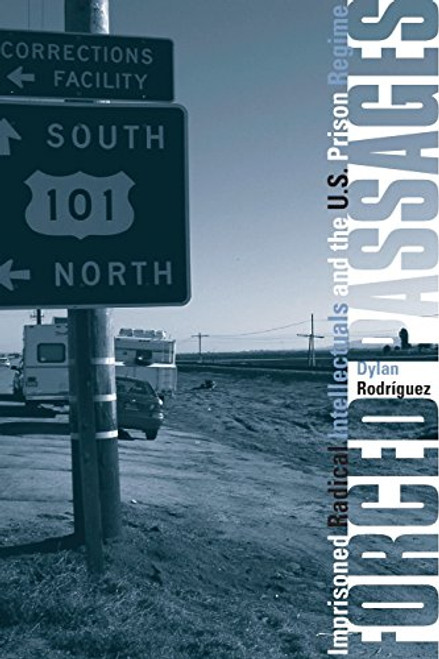More than two million people are currently imprisoned in the United States, and the nations incarceration rate is now the highest in the world. The dramatic rise and consolidation of Americas prison system has devastated lives and communities. But it has also transformed prisons into primary sites of radical political discourse and resistance as they have become home to a growing number of writers, activists, poets, educators, and other intellectuals who offer radical critiques of American society both within and beyond the prison walls.
In Forced Passages, Dylan Rodrguez argues that the cultural production of such imprisoned intellectuals as Mumia Abu-Jamal, Angela Davis, Leonard Peltier, George Jackson, Jos Solis Jordan, Ramsey Muniz, Viet Mike Ngo, and Marilyn Buck should be understood as a social and intellectual movement in and of itself, unique in context and substance. Rodrguez engages with a wide range of texts, including correspondence, memoirs, essays, poetry, communiqus, visual art, and legal writing, drawing on published works by widely recognized figures and by individuals outside the publics field of political vision or concern. Throughout, Rodrguez focuses on the conditions under which imprisoned intellectuals live and work, and he explores how incarceration shapes the ways in which insurgent knowledge is created, disseminated, and received.
More than a series of close readings of prison literature, Forced Passages identifies and traces the discrete lineage of radical prison thought since the 1970s, one formed by the logic of state violence and by the endemic racism of the criminal justice system.
Dylan Rodrguez is assistant professor of ethnic studies at the University of California, Riverside.
In Forced Passages, Dylan Rodrguez argues that the cultural production of such imprisoned intellectuals as Mumia Abu-Jamal, Angela Davis, Leonard Peltier, George Jackson, Jos Solis Jordan, Ramsey Muniz, Viet Mike Ngo, and Marilyn Buck should be understood as a social and intellectual movement in and of itself, unique in context and substance. Rodrguez engages with a wide range of texts, including correspondence, memoirs, essays, poetry, communiqus, visual art, and legal writing, drawing on published works by widely recognized figures and by individuals outside the publics field of political vision or concern. Throughout, Rodrguez focuses on the conditions under which imprisoned intellectuals live and work, and he explores how incarceration shapes the ways in which insurgent knowledge is created, disseminated, and received.
More than a series of close readings of prison literature, Forced Passages identifies and traces the discrete lineage of radical prison thought since the 1970s, one formed by the logic of state violence and by the endemic racism of the criminal justice system.
Dylan Rodrguez is assistant professor of ethnic studies at the University of California, Riverside.








